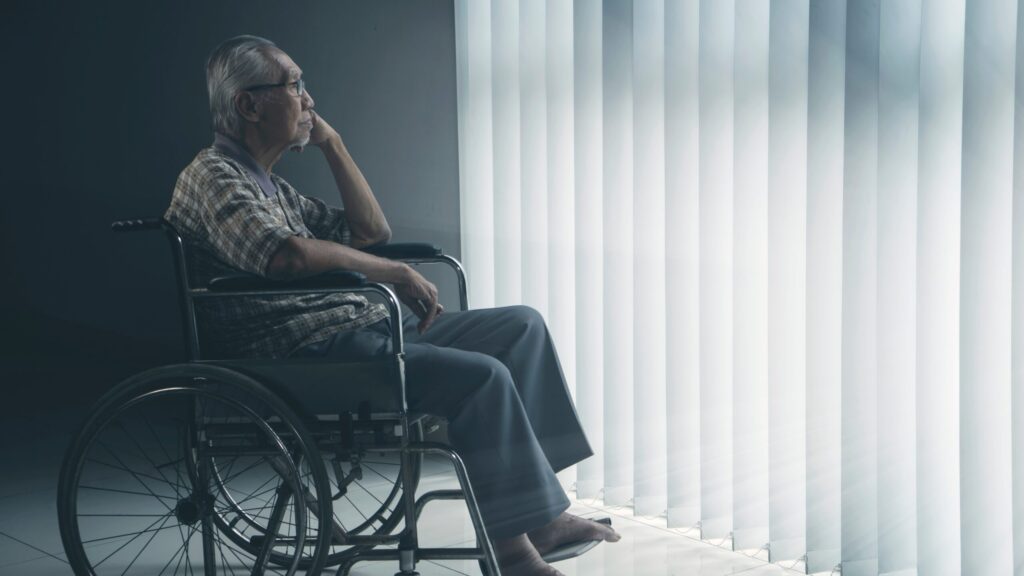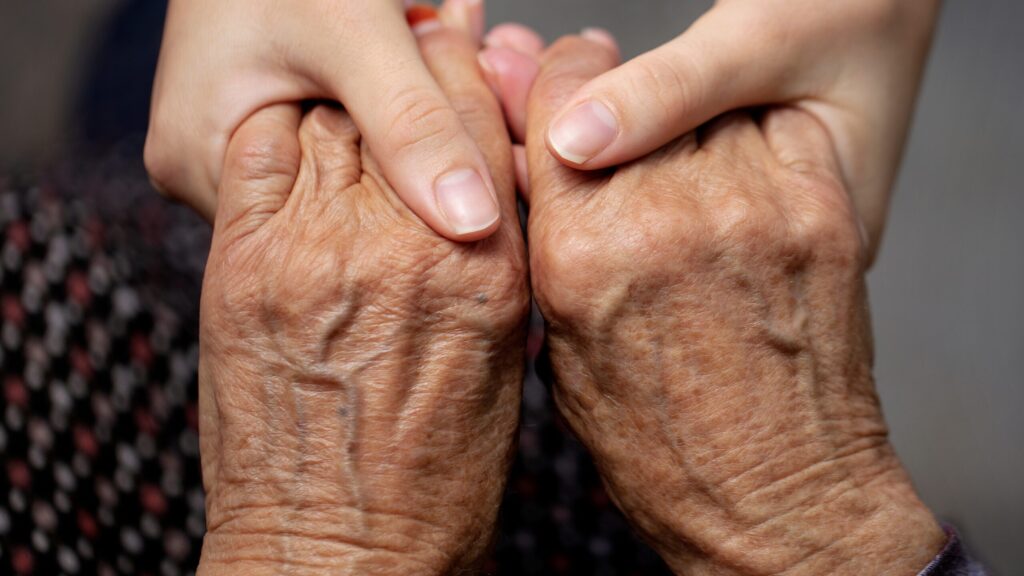Suicidal thoughts can occur at any age, but older adults face unique challenges that can increase their risk. Mental health struggles, the stress of daily life, trauma, stigma around seeking help, a history of suicide, and access to lethal means are all factors that can lead someone to consider suicide.
For older adults, additional factors come into play. Isolation, the loss of a spouse or loved one, chronic illness or physical decline, financial constraints, and an inability to fully care for themselves can all contribute to a deep sense of hopelessness.

Why Older Adults Are at Higher Risk
Loneliness is an epidemic that touches every generation, but it can be especially severe among older adults who are homebound, separated from family, or grieving the loss of a spouse. Without a strong support system or community, feelings of despair can intensify.
The CDC reports that adults 65 and older account for 23% of suicide deaths in the U.S. Suicide amongst older adults is more carefully planned out and often use more lethal methods. The highest overall suicide rate are men ages 75 and older.

Warning Signs to Look For
It’s never easy to consider that someone you love may be thinking about suicide, but noticing the signs can save a life. Some key indicators include:
- Becoming withdrawn. Daily routines and favorite activities, like gardening or hobbies, no longer bring joy or are abandoned altogether.
- Giving away cherished items. A sudden willingness to part with meaningful possessions can signal detachment.
- Neglecting medications or self-care. Skipping doses, stopping daily hygiene, or ignoring health routines they once maintained may be red flags.
- Cognitive decline. Dementia and other impairments can increase impulsiveness and risk.
- Changes in the home environment. Increased clutter or safety hazards like falls may reflect a decline in personal safety and self-care.
- Talking about death. Casual comments about wanting to “move on” or “be done,” especially after a medical incident or death of a spouse, should never be dismissed.

What You Can Do
Suicide is preventable. Once you notice any of the above warning signs, there are compassionate, practical steps you can take. If you are worried about an older loved one:
- Start the conversation. Ask them directly if they are thinking about suicide. It may feel uncomfortable, but open, honest questions can reduce shame and open the door to support.
- Listen without judgment. Allow them to share their feelings without interrupting or minimizing their pain. Simply being heard can be powerful.
- Take it seriously. Never dismiss or minimize their words.
- Offer support. Reassure them: “I care about you. I want to help. Do you feel suicidal?”
- Stay connected. Regular calls, visits, or check-ins help ease isolation. Involve trusted family or friends in their support system.
- Encourage professional help. Support them in reaching out to a healthcare provider or calling a helpline. Offer to sit with them while they make the call.
- Monitor changes. Pay attention to their routines—are they eating, bathing, taking medications? Do they have access to means of harm? Address these risks where possible.
The International Association for Suicide Prevention emphasizes encouraging help-seeking behavior and linking individuals to professional support. Your compassion, attention, and action can make a life-saving difference.
Suicide Prevention Resources in the U.S.
If you or someone you know is in crisis, please reach out:
- 988 Suicide & Crisis Lifeline: Call or text 988 (24/7, free, confidential)
- Crisis Text Line: Text HELLO to 741741
- Veterans Crisis Line: Call 988, then press 1
- Substance Abuse and Mental Health Services Administration (SAMHSA) Helpline: 1-800-662-4357
- Find a Helpline (global directory): https://findahelpline.com/i/iasp
You are not alone, and support is always available.


